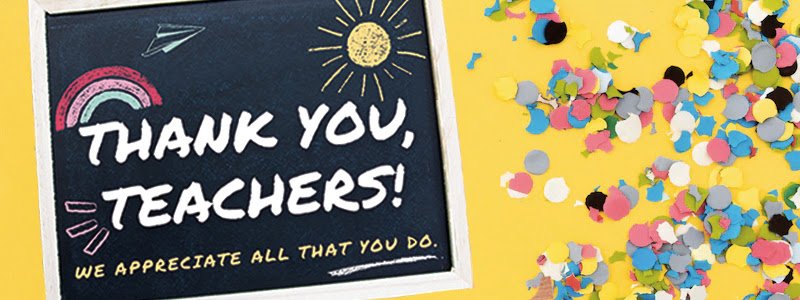I began working for Acknowledge Alliance as a psychotherapist in 2019 after being drawn to the organization’s approach of serving at-risk youth from a psychoanalytic treatment approach. When you hear that term, you might imagine Sigmund Freud, cigars, and lying on a couch with a therapist nodding and holding a blank expression while you discuss your childhood. Of course, this depiction does not match reality- psychology has had to endure an image that does not represent the present-day, true essence and technique of the work. In contrast, no one believes that surgeons are still practicing bloodletting with leeches or using arsenic to treat headaches. With increased testing, technology and modern interventions, we now know that those past medical interventions do not work and have found humane and effective alternatives. The same is true for psychoanalysis; it has evolved in the last 100 years and today’s treatments are evidence-based, have been tested, retested and proven to be effective with a variety of mental health disorders (de Maat, de Jonghe, Schoevers & Dekker, 2009).
Not a Quick-fix, but a Highly Effective Solution
In contrast to psychoanalytic therapy, you may have heard of Cognitive Behavioral Therapy (CBT), an extremely popular approach that centers around using strategies to change thinking patterns and helping individuals to “learn to be their own therapists.” This type of treatment is beneficial and effective in many cases, but it is unfortunately often touted as the “best” and only “right” treatment for mental health disorders. It may be surprising to hear that psychoanalytic interventions can be just as, if not more, effective at treating a wide range of mental health concerns. In fact, long-term psychoanalytic therapy has been shown to be more effective in treating complex mental health concerns, and that for general depression, a psychoanalytic treatment provides equivalent outcomes to CBT (Leichsenring & Rabung, 2011; Thase, 2013).
There has been a recent shift to provide people with “quick-fixes” for long–term, pervasive issues. This shift may be due to a common misconception that it is more cost-effective to offer 8-10 sessions, when in reality, it actually costs less to treat the whole person’s underlying issues than to prescribe them lists of techniques or exercises. According to The Harvard Review of Psychiatry, “data suggests that long-term psychoanalytic therapy substantially reduces health care use and sick leave” and that “the benefits seem to endure for years after termination and reach the point of counterbalancing the costs of treatment approximately three years after treatment termination” (de Maat, Philipszoon, Schoevers, Dekker & De Jonghe, 2007). This is certainly not to say that tools, skills and worksheets cannot be helpful for some people in certain circumstances and for certain psychological issues. However, there is no shortage of these shorter-term, cognitive behavioral skills-based therapies around, and they are typically the therapies covered by most insurance providers, including Medi-Cal. In other words, individuals who cannot pay a typical private practice hourly fee are often only offered cognitive behavioral type therapies on a short-term basis.
Equitable Access to a Variety of Therapeutic Treatments
With such an abundance of CBT offerings, it is especially relevant to provide an alternative approach to the high-need population Acknowledge Alliance serves. We believe that all people, regardless of their income status, ethnicity or inclusion in any other social group, should be given the opportunity to partake in longer-term, depth-oriented psychological treatments so they may explore the therapeutic approach that best suits them. This decision should be based on their unique and complex psychological state, and what will most help them as an individual, dyad, or family unit. What many people really need is an exploration as to why they are unable to reduce their suffering alone, and how their therapist can support reductions in suffering by building trust, attunement and collaboration to be able to uncover the sometimes painful realities in someone’s mind.
In my past experience working in insurance-based systems, I was faced with severe limitations in terms of what diagnoses I could treat, what type of therapy I could provide, and even treatment length. Because of this, when someone no longer met the criteria for a diagnosis, I would have to close their case. No longer meeting criteria for a diagnosis is of course a positive outcome, but in and of itself, is not an indicator that someone is free of pain and suffering or that they have built up enough inner resources to discontinue therapy. Imagine an adolescent who lives under constant fear that a parent could be deported or that there will not be enough money for rent, all while attending high school, caring for siblings, and attempting to deal with past and present traumas like physical abuse, poverty and traumatic separation from family members. Now imagine that youth was only given access to therapy for three months or less.
Helping Adolescents Make Meaning Out of Suffering
Adolescence is a time when many people begin to inquire and wonder about their meaning, purpose, and existence. This is developmentally appropriate, and a positive milestone for teens. When a young person is struggling with economic and cultural hardships on top of life’s routine demands, it may be difficult to imagine how such an adolescent could have the capacity to ponder existential issues over surviving day-to-day challenges. That may be true for some, but many therapists in the psychoanalytic tradition have found the opposite- when people are struggling so intensely that their lives feel like a daily fight for survival, they need to be nourished by gaining greater access to their psyche and make meaning out of their suffering. As psychiatrist Viktor Frankle said, “challenging the meaning of life is the truest expression of being human.” At Acknowledge Alliance, I feel honored to have the opportunity to help at-risk youth to discover that meaning and connect to the humanness Frankle spoke of. It is a privilege to be allowed into someone’s inner world, to be a witness to their life, and to help them develop their minds and emotions into useful tools that will propel them ahead in their lives.
Citations
1. Saskia de Maat, Frans de Jonghe, Robert Schoevers & Jack Dekker. 2009. The Effectiveness of Long-Term Psychoanalytic Therapy: A Systematic Review of Empirical Studies, Harvard Review of Psychiatry, 17:1, 1-23, DOI: 10.1080/10673220902742476
2. Leichsenring, F., & Rabung, S. (2011). Long-term psychoanalytic psychotherapy in complex mental disorders: Update of a meta-analysis. British Journal of Psychiatry, 199(1), 15-22. doi:10.1192/bjp.bp.110.082776
3. Thase, M. 2013. Comparative Effectiveness of psychoanalytic Psychotherapy and Cognitive-Behavioral Therapy: It’s About Time, and What’s Next? American Journal of Psychiatry, Vol 1, issue 9.
4. de Maat S, Philipszoon F, Schoevers R, Dekker J, De Jonghe F. Costs and benefits of long-term psychoanalytic therapy: changes in health care use and work impairment. Harv Rev Psychiatry. 2007 Nov-Dec;15(6):289-300. doi: 10.1080/10673220701811654. PMID: 18097839.
























